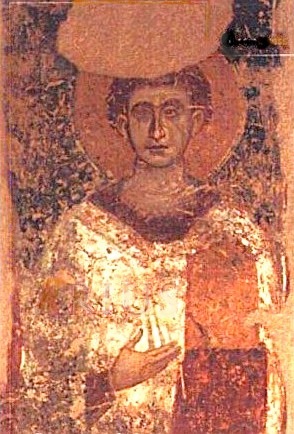The Search for Heretics: Christianity and the Qurʾan
By Gabriel Reynolds
The tradition of western scholarship on the “sources” of the Qurʾan is usually traced to Abraham Geiger’s 1833 work, Was hat Mohammed aus dem Judenthume aufgenommen (“What did Muhammad Take up from Judaism?”). While Geiger’s work is focused on the Jewish sources of the Qurʾan, others would soon write works focused on the Christian sources of the Qurʾan. Yet there was something different about works devoted to Christianity and the Qurʾan. While neither Geiger nor others interested in Judaism showed any particular concern for Jewish heresies or heterodox Jewish doctrine, scholars who wrote on Christianity and the Qurʾan were often fascinated with Christian heresies.
This fascination seems to be connected with a phrase that is (falsely) attributed to Theodoret of Cyrrhus (d. 458 or 466), in which Arabia is described as haeresium ferax, the “bearer” (or “mother”) of heresies. Scholars, inspired in part by this phrase, often seem to imagine that in the Prophet Muhammad’s day the deserts of Arabia were teeming with Christian heretics who had fled the merciless enforcers of Chalcedonian orthodoxy in Byzantium. In 1900, for instance, the Protestant missionary Samuel Zwemer wrote:
Not only was religious life at a low level in all parts of Christendom but heresies were continually springing up to disturb the peace or to introduce gigantic errors. Arabia was at one time called “the mother of heresies.” The most flagrant example was that of the Collyridians, in the fourth century, which consisted in a heathenish distortion of Mariolatry. Cakes were offered to the Holy Virgin, as in heathen times to Ceres. (The Cradle of Islam, 306–7)
Richard Bell, writing in 1925, felt that Arabs were particularly susceptible to heresies:
Arabia (by which probably is meant the Roman province of Arabia, not the land of the nomads) had a reputation in the early Church as a source of heresies. That is perhaps not to be wondered at if we remember that in these regions the Greek and the Semitic mind were in contact, and in a manner in conflict. For the Semitic elements of the Church all along had difficulty in following the subtleties of the Greek intellect. . . . It is possible, however, that some of the heretical movements persecuted in the Empire may have sought refuge in Arabia and helped to form the soil out of which Islam grew. (The Origin of Islam in Its Christian Environment, 20)
In this sort of historical context it seems that, wherever he turned, Muhammad couldn’t have helped bumping into a heretic. Robert Speer, speaking at the 1911 Lucknow missionary conference, blamed the influence of Christian heretics for Muhammad’s failure to convert to Christianity:
The view of Christianity which lies at the base of Islam and which led Muhammad to repudiate it was a false view. He had never met the Christianity of Christ and the Apostles. The Qur’an shows what a travesty of the Gospel had come to him. (“The Attitude of the Evangelist toward the Muslim and His Religion,” 233-34)
It is rare to find this sort of fanciful speculation in scholarship these days, but scholars continue to have recourse to Christian heresies in their efforts to explain the Qurʾan. Geoffery Parrinder wonders whether the manner in which the Qurʾan insists that God would not “take” a son (Q 2:116; 10:68; 17:111; 18:4; 19:35; 19:88, 91, 92; 21:26; 23:91; 25:2; 39:4; 72:3) is a rejection of “Adoptionist and Arian heretics” (Jesus in the Qurʾan, 127). Scholars regularly refer to al-Nisaʾ (4) 157, the Qurʾanic verse on the Crucifixion, as “Docetist”—even if Docetists were long gone by the seventh century. Francois de Blois argues that al-Maʾida (5)116—which has Jesus deny ever telling people to worship him and his mother—takes us on a path “which leads directly to the Nazoraeans of Christian heresiographers” (“Nasrani and Hanif,” BSOAS 65 [2004], 14).
Yet all of this begs the question of whether there is truly any need to follow a path to Christian heretics. Other passages suggest that the Qurʾan intentionally employs rhetorical tools such as irony and hyperbole. When the Qurʾan announces to the Prophet, “Give the good news of a painful punishment” to the unbelievers (Q 44:49), it is employing irony (and to good effect).
How are we to understand al-Tawba (9) 31, where the Qurʾan says of the Jews and Christians, “They have taken their rabbis and monks as Lords”? We could take this verse as a sign that Muhammad met some mysterious clergy-worshipping heretical sect in the Arabian desert—we might call them “Sacerdolaters.” Or instead we might recognize that the Qurʾan is here using hyperbole. So too for other verses, such as al-Nisaʾ (4) 157 or al-Maʾida (5) 116.
Indeed, perhaps in general we should be less concerned with heretics, and more concerned with rhetoric.
© International Qur’anic Studies Association, 2013. All rights reserved.

